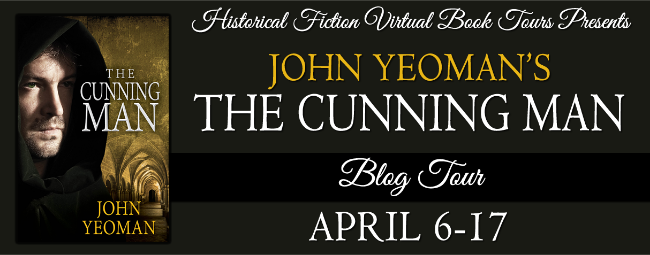Looking for clever, fast-paced historical mysteries? Here you’ll discover seven ‘impossible’ crimes, locked room puzzles, passion and riddles galore. Enjoy these lusty crime stories set in Elizabethan England where a ‘cunning man’, Hippo Yeoman, must solve devilish cases to save his friends’ lives, or even his own.
This anthology of short historical mystery stories is a world ‘first’. It’s not only a joy to read in its own right, but it’s also a ‘fictorial': a collection of crime thrillers packed with clever but unobtrusive tips that show you precisely how they were written, to help you write your own stories! They will appeal equally to avid readers of historical crime and students of creative writing who want to enhance their story or novel writing skills, in any genre.
Can you find the culprit before Hippo does? Challenge your own detective skills, enjoy a thundering good read in settings that are wholly authentic to 16th century London, and discover – while you read – how to write a great story!
~~~oOo~~~
REVIEW
There were many 'firsts' for me while reading The Cunning Man: my first experience reading anything by John Yeoman, my first experience reading a 'fictorial', and my first experience reading a book that contains within its pages its own prequels and sequels!
Let me explain.
Dr. John Yeoman is, by his own admission, 'a total rogue' (see the author information below). This infuses his writing - fiction or otherwise - with a lot of humor. I get the impression of a man who is comfortable enough with his language abilities to take the words out and play with them - a skill which people can develop only when they have gotten past themselves. (I am reminded here of my favorite of the original six Star Trek movies: The Voyage Home (IV) - where the serious story poked gentle fun at the legend that was (is?) "Star Trek".
As I read "The Cunning Man", I faithfully clicked through to each of the footnotes, where Yeoman includes some information about the literary devices he has used in order to make the stories interesting. I am always amazed by someone who can get their point across with an economy of words, which is a talent that I sadly do not possess on most occasions. In introducing the 'fictorial' (fiction + tutorial) to the world, Dr Yeoman made the right choice in using short stories rather than a full-length novel. I could read and digest the footnotes and it added to the stories. Using this method in a longer book might have had the opposite effect.
If a prequel is a story before the story, and a sequel is a story after the story, does that make the story a 'quel'? I hope Yeoman's The Cunning Man style is not 'quelled' any time soon! We got a series of seven Yeoman (speaking of Hippo and his brother this time) stories, seven glimpses into the history (or should that be herstory?) of Elizabethan England, and seven tales masterfully told.
So, while reading The Cunning Man brought up many a first, it brought up nary a last. Dr. Yeoman has three other books listed on GoodReads: Fear of Evil, Dream of Darkness, and The Hog Lane Murders. I shall be reading each of them in turn.
~~~oOo~~~
AUTHOR INFORMATION
Dr John Yeoman, PhD Creative Writing, is a total rogue. His first adventure when leaving Oxford university with an MA in English literature was to host a witchcraft cabaret in a London cellar. This so enchanted him with devilry that he took up a career in public relations. Across 42 years he has edited a newspaper, chaired a big PR consultancy and trained several thousands of people to write for fame, fun and occasionally fortune.
For fifteen years he ran Britain’s largest self-publishing business and earned up to $1.4 million annually from his own living room. (Oh, thou of little faith! If you’re skeptical, send him a nice email and he’ll point you to its accounts at Companies House.)
He founded Writers’ Village in 2009, now one of the world’s largest short fiction contests. It’s no coincidence that its blog is titled the Wicked Writing Blog and it hosts guest posts every week from every best-selling author who is not ashamed to show their face there.
He lives in central England with his wife Celia, a dynasty of children and a tortoise. His passions include Jacobean literature, heirloom vegetable gardening and antique wines.
The villain should properly be addressed as Dr John Yeoman, MA Oxon, MA (Res), MPhil, PhD, FSRS. But you didn’t want to know that, did you? Quite right. After all, in the time you’ve wasted reading his biography here you could have been enjoying his novels which are triumphs of entertainment.
~~~oOo~~~



That sounds intriguing and different. Good job, John!
ReplyDelete